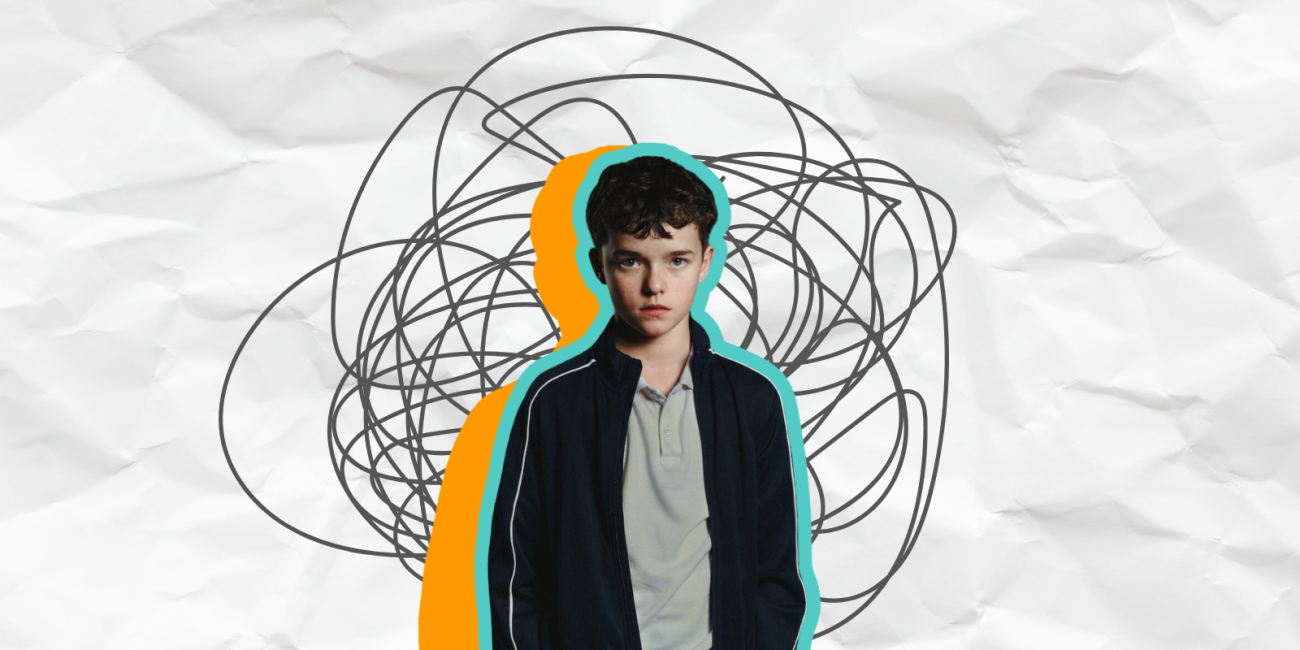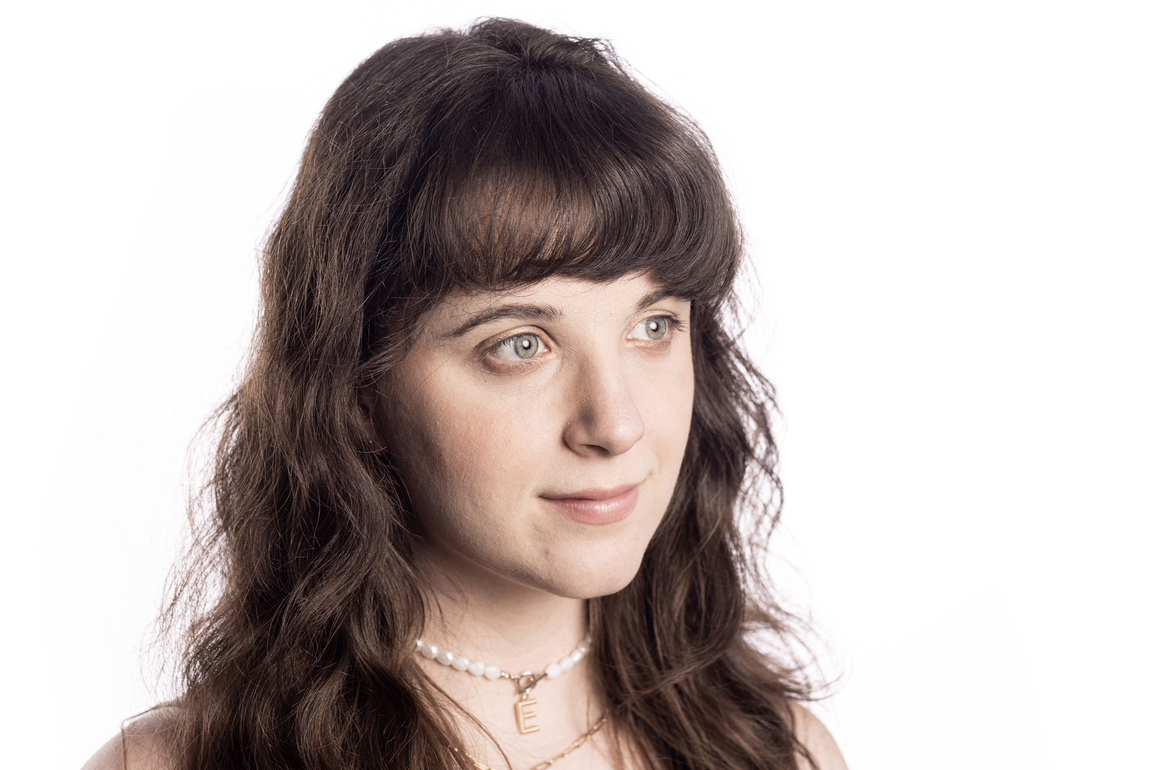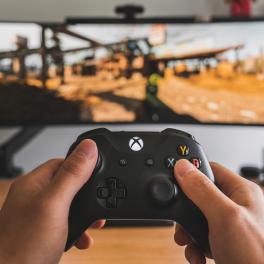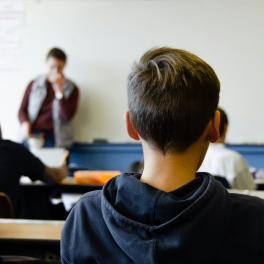
Content Disclaimer: This piece includes sensitive topics that some people might find difficult. Please visit our Resources Page for help.
The views & opinions expressed in this article are those of the author and do not necessarily reflect the views of VoiceBox, affiliates, and our partners. We are a nonpartisan platform amplifying youth voices on the topics they are passionate about.
When Adolescence was released on Netflix on March 13th, I originally made an effort to ignore it. I had seen the teaser and read the synopsis, and overall assumed it would yet again be another UK Crime drama, a genre that is personally not my cup of tea. So I managed to go a good 1 week before it popped up on my radar again. This time, it was, as it typically is, through social media that I found Adolescence making a splash. I didn't find out much from TikTok other than there was a surprise ending in episode 1 that left viewers' jaws on the floor, and changed the entire discourse of the show. This piqued my curiosity, and through very little digging, I managed to find out what the shock “twist” was, and why it was such a big deal.
If you’re reading this article, I’m assuming we are all on the same page on what Adolescence is really about, and as such, I’m going to go right ahead and “spoil” the show. 13-year-old Jamie Miller is arrested in his family home for a murder he is adamant he has not committed. His family, headed up by Jamie’s father, are of course certain that their youngest is innocent. Throughout the first episode, all the viewer hears from Jamie is that he hasn’t done anything, and that he is innocent, so naturally, you assume the show is headed towards some sort of major courtroom drama filled with evidence collecting and doubt from both the accusing and the accused. Standard stuff. So at the end of episode 1, when CCTV of a young boy, who is undoubtedly Jamie, stabbing a young girl he knows from school is presented to him and his father, the entire tone of the show shifts. It becomes clear that this isn’t a show intent on dragging out tension and dealing with moral scruples. This show explores the concerning increase of misogyny in the UK and how aspects of online culture may be influencing some young boys in troubling ways. Adolescence has made waves in UK culture, with countless articles, thought pieces, social media posts, and online discussions all focusing on what exactly the purpose of the show was: to bring into the spotlight just how serious the misogyny and violence against women epidemic really is.
The thing that surprised me most about the discourse around Adolescence is how much of it seemed to be spearheaded by older generations. Sure, these demographics have a larger amount of parents who would likely be both shocked and concerned at the revelations Adolescence brings forward concerning their children, but it is not specifically why they are concerned by the subject matter of Adolescence that surprised me, but how they are concerned and how they have been affected by the show. People of Gen Z generation, those of us who have grown up with the internet as a constant presence in our lives and whose media and cultural literacy is affected by online discourse, don’t seem to be as shocked or alarmed by the subject matter Adolescence presents. If anything, I feel nothing other than a familiar sense of disappointment and looming doom. Apart from the “twist” in episode 1 and how it is (masterfully) presented, the show didn’t shock me or present me with information that I was unaware of.
The fact of the matter is, the 'red pill' misogyny concept presented throughout the show is nothing new. When I studied this exact phenomenon for my dissertation, I found examples of red pill culture going back over 20 years. But it doesn't take a dissertation to come to this conclusion; anyone who has grown up on the internet (like Gen Z and Gen Alpha) will have come into contact with red pill content. Many young men on the internet are being sucked into the red pill web, and it is a widespread enough phenomenon that, as a female Gen Z-er, I feel practically helpless in trying to prevent it. I am worried, but not at all surprised, when content pushing the red pill agenda with hundreds to thousands of agreeing comments comes up on my screen. All this to say, there is a disconnect between the younger generations who have grown up surrounded by online misogyny and those who have not. I have not come across anyone my age or under who is either shocked or amazed at the revelations Adolescence poses. In juxtaposition to this, my dad called me up to express his deep concern and surprise at how serious Adolescence makes the misogyny crisis out to be and asked me, “Is it really that bad?” To which I replied very bluntly, “Yes.”
However, if there is one area of Adolescence that does not seem to give an accurate portrayal of the issues the UK faces in combating misogyny, I believe it is in episode 2. When the police enter the school of Jamie Miller and his victim, Katie Leonard, the teachers and staff appear bewildered and completely blindsided by the entire ordeal. They appear to have no understanding of online culture and the breeding of misogyny. Andrew Tate is a subject that is widely encouraged to be discussed in secondary schools, and many resources on how to do so have been made widely available to teachers. As a result, it seems unlikely that school faculties have little to no knowledge of the dangers at hand. I anonymously interviewed a 24-year-old secondary school teacher to get further insight into the overall awareness of secondary school staff.
What is it like working as a Gen-Z and young teacher at a school with young people of your generation?
Working as a young teacher at the school is interesting when it comes to how students talk to and approach you. I’ve noticed, because of my age, that the students in secondary school tend to use different vocabulary towards me and most of the time they speak to me like a peer as opposed to an older authority figure. This is most prevalent when it comes to Year 9 and 10. In some ways, this dynamic works as it allows the students to feel more comfortable talking to me about issues or opening up, which they may feel hesitant to do with teachers they see as worlds beyond them. However, in another way, it also causes instances of intimidation as some students believe that they don’t have to hold back, as a young teacher like me is not seen as a ‘proper adult’ alongside being female. I’ve had to practice balancing out that peer vs authority dynamic, and I feel that I have found the perfect in-between, but of course, it comes with its challenges.
Have students in your school been discussing/taking part in discourse surrounding Adolescence? If yes, what have they been saying/doing?
During the height of ‘Adolescence’, I noticed older students (Years 9, 10, 11) discussing the themes and symbolism of the show, whilst younger students (7, 8) more so argued in confusion about what the show was trying to say. This was mostly echoed through the male students who were ironically the same age as the character Jamie, as they kept discussing how he was ‘set up by his other friend’ or how they ‘found the show boring.’
Through the older students, there does not appear to be a question on the show's themes, but instead a debate on those themes. I have heard female students talk about these very issues they face in school, whether it be discussing the show or one-on-one conversations I have had with them, hearing about everyday misogyny and 'slut shaming' they face. What worries me the most when we have these conversations is the number of times it is followed up by a shrug and “I’m used to it.” It brings me back memories of secondary school, when all of a sudden, comments about how I was ‘begging for attention’ from other students came swarming in because I forgot to wear a sports bra to PE one time. But whenever I brought up this to my friends, they said, “Don’t act like you don’t love the attention.” Or, “That’s normal. Boys will be boys.” The frightening idea that this behaviour is still considered ‘normal’ showcases why so many of them relate to the character who never truly appears on screen (Katie). They are able to empathise with the struggles and hardships of a character they've never met. This is because they've heard other boys talk about them in the same way Jamie does, making the experience all too familiar. While it upset me, it does not surprise me to hear male students defend Jamie, I believe they do so because they feel he represents the ‘male loneliness epidemic’. They understand what the show is talking about, but they do not necessarily agree with it.
Have teachers/faculty in your school been discussing/taking part in discourse surrounding Adolescence? If yes, what have they been saying/doing?
I have seen every teacher I work with discussing this show in detail, down to how the representation of the school in Episode 2 was jarringly accurate with its depiction of students calling out, throwing things, making light of a serious subject and how teachers are just trying to get through the lesson without snapping. However, one conversation that stuck with me was with a male teacher during lunch, as he overheard a conversation I was having with some colleagues about how a student became verbally aggressive towards me after I confiscated their phone during a lesson. He brought up the show using the reaction of the student as a comparison to the aggression demonstrated by Jamie’s character when he is not given something he believes he is owed. Another teacher responded by saying, “It’s so sad when you think about it because the parents weren’t abusive or bad, and he ended up that way, anyway.” The other teacher responded, “I actually argue that by the parents not doing anything, they contributed massively to how he turned out. The parents did not do anything bad, but the problem lies in that they didn’t do anything at all.”
Does online misogyny and incel content affect your school?
I certainly hear the occasional ‘incel’ and ‘slut’ name-calling from older students as I try to get the class in order. In particular, hearing male students talk about all these male influencers that make up their vocab and how they view the world and certain trends. Hearing, “Andrew Tate’s new car is sick!” from male students as if he is someone to admire always makes my skin crawl. The female students pose and post Snapchats, and the male students call them a ‘beg’ while simultaneously outing each other for messaging said female student online for more ‘exclusive’ pics.
What measures (if any) has your school been taking to tackle misogyny and incel content?
I truly wish these situations were taken far more seriously than they have been. With the release of the show, the discussion amongst schools has been vast and encouraging; however, the actions taken are so minimal that it’s no surprise that these issues are continuing. I know for myself that whenever I hear a case of sexist or misogynistic behaviour take place either from my class or around the school, I cannot just sit and do nothing. I discuss with both parties what has happened detail by detail, and try my best to bring attention to these teenagers how damaging this behaviour is and the serious consequences it can have. However, because of the show’s success, the response I am mostly met with is, “Ah, Miss, we get it, you watched Adolescence.” Because it is still not being treated as a serious and detrimental issue, whenever said behaviour is called out, the students believe that it (like many things in their life) is simply a trend and not something to be taken seriously. If bigger actions were taken on this subject, then they’d know it’s a real problem. In those moments, I find myself feeling like Jamie’s psychologist in Episode 3. Going in with a goal and leaving feeling deflated and hopeless about how these students will navigate through life.
In your experience, are parents concerned about online misogyny and incel content?
In all honesty, I believe it's half and half. Some parents are scared and worried; however, they are unsure how to navigate fixing that problem and in what ways they should have that conversation with their children. And the other is because I genuinely believe parents refuse to believe that their child could be so easily influenced, and so they have nothing to fear.
---
With my interviewee’s answers in mind, the conclusion I reach over Adolescence and young people’s response to the show is that we don’t really know how we are expected to reply. As I emphatically made clear, the misogyny crisis in the UK is nothing new, and neither is violence against women, or the “red pill” agenda of misogynistic online discourse. While Adolescence has done a great job of bringing these issues into the spotlight, and shining greater awareness for the older generations, it feels like it does almost nothing to move us younger generations, to act. I feel this show wasn’t really made for us, and that’s okay. If its primary goal was to highlight the crisis to the people who did not grow up with online misogyny discourse being a practically daily factor in their lives, then the show has achieved that goal splendidly. Sadly, I don’t know how else to reply to the reactions of the older generations who appear bewildered and scared at the rise of misogyny and violence against women in the UK. My hope is that the show's success will finally be a catalyst for meaningful change, something long overdue.
Support Young Creators Like This One!
VoiceBox is a platform built to help young creators thrive. We believe that sharing thoughtful, high-quality content deserves pay even if your audience isn’t 100,000 strong.
But here's the thing: while you enjoy free content, our young contributors from all over the world are fairly compensated for their work. To keep this up, we need your help.
Will you join our community of supporters?
Your donation, no matter the size, makes a real difference. It allows us to:
- Compensate young creators for their work
- Maintain a safe, ad-free environment
- Continue providing high-quality, free content, including research reports and insights into youth issues
- Highlight youth voices and unique perspectives from cultures around the world
Your generosity fuels our mission! By supporting VoiceBox, you are directly supporting young people and showing that you value what they have to say.





